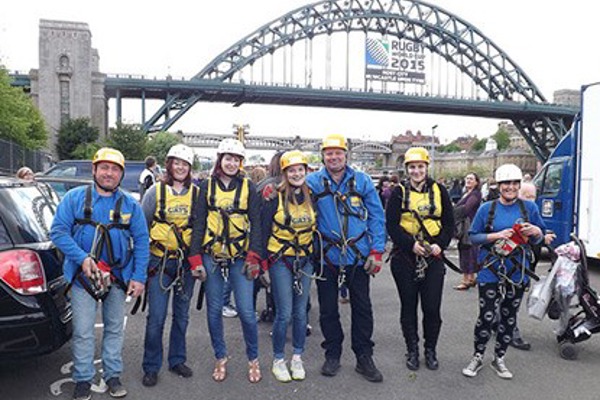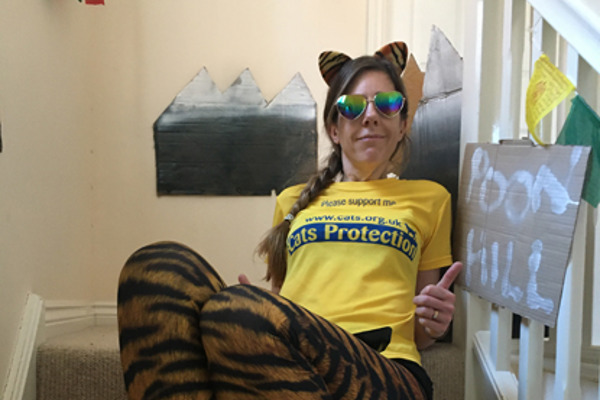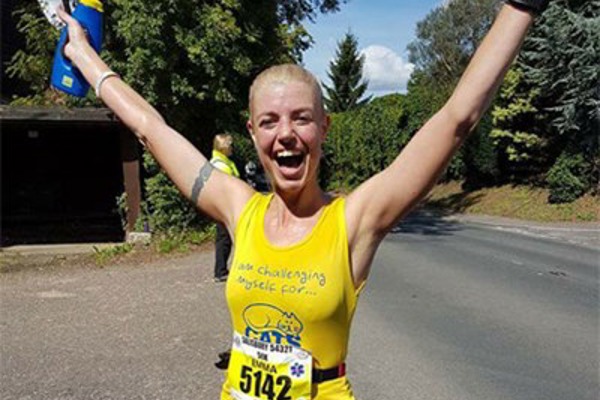An international challenge trip of a lifetime: Canoeing down the Zambezi and volunteering at a lion conservation camp.
This post has been written by Amy Rutter, Publications & Digital Officer at Cats Protection
When I signed up for the Zambezi River and Big Cat Project, I don’t think I realised just how gruelling it would be. It would be a challenge – of course I knew that – but even more so in 42 degree heat. The days were long and tiring, there was lots of travelling and lots of information to process.
But I also didn’t realise quite how much wildlife we’d see, how well we’d connect as a group and how much we’d all learn.
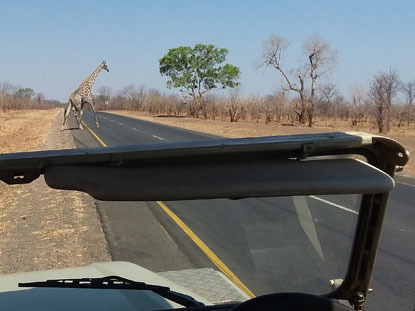
Watch out: giraffe crossing
When we arrived in Lusaka (via Johannesburg) after more than 24 hours of travelling, we were taken to a campsite – our first home, for that night at least – and introduced to our canoeing guides, TK and Martin. It was dark so they welcomed us with a hot meal they’d kindly whipped up by campfire and we then discovered that the Zambezi was only about 10 feet behind our tents. They said we were likely to have some visitors in the night – hippos most likely – but that they were there to listen out, protect us and shoo them away.
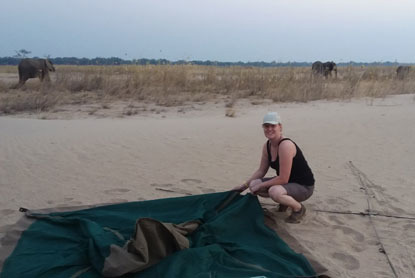
Setting up our tents alongside elephants
Sure enough, a number of us awoke to the sound of snorting and the rustling of canvas just metres from our heads. Wide-eyed, I tried not to make a sound. In the morning, TK told us a hippo was in the camp and they had to politely send him on his way.
The amazing thing was, no matter how many wild animals we or they came across (often by moonlight without our knowledge), they made us feel absolutely safe at all times.
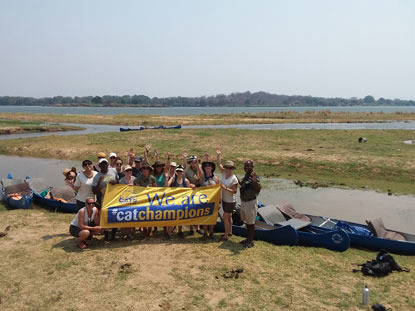
Championing the CP banner!
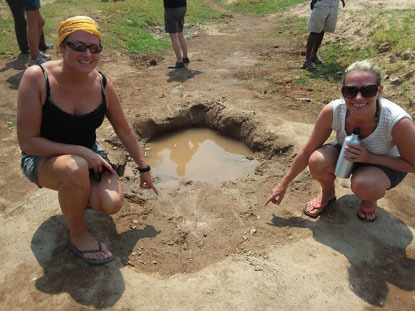
Finding a lion paw in the wild
I thought we’d be lucky to see a single hippo or crocodile. We saw hundreds of hippos in the river; we were constantly steering our canoes around them to avoid disturbing them. We saw many a crocodile too – the largest looked around 4.5 metres long – and beamed in amazement when we came across herds of elephants bathing in the water.
Canoeing was hard work, especially at points in the day when the wind picked up and we’d get carried by the current. We all got very sore thumbs too; the paddles are not kind to your hands! We’d have to use all our combined power in our two- and three-manned canoes to stay within the safe zones of the water, out of harm’s way.
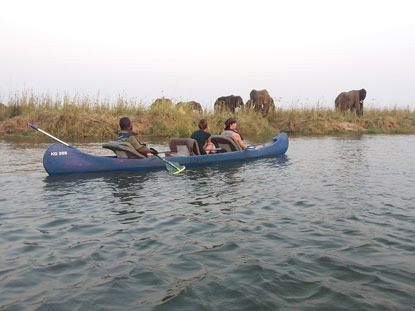
Spot the elephant!
After three days of canoeing a total of 70km down the Lower Zambezi, we travelled by coach to Livingstone for the next part of our adventure, volunteering at a wildlife and environmental conservation and research project.
The project’s aim is to ensure the future of Africa’s wildlife and one program rehabilitates and reintroduces the offspring of captive-born African lions back into the wild. We fed the lions and also helped with data collection – observing the pride to evaluate whether they were functioning as wild-born lions do. We collected data on a variety of social, territorial and hunting behaviours of the pride – it sounds very easy but it was difficult to not get distracted and keep an eye on which lion was your own when they all look so similar!
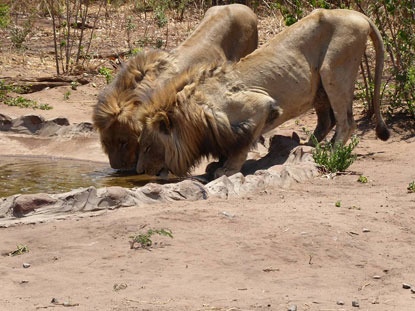
Monitoring lion behaviour; photo by Helena Peck
We also searched for and monitored wild elephants, buffalo and waterbuck to understand their impact on the ecosystem and conflict with rural communities; and accompanied our guides on a snare sweep (devastatingly, we found over 40 between us) to stop poaching of wildlife.
On one of the mornings we also visited a school to meet the local children. It was such a humbling experience.
We played games with them for a while and delivered a lesson, helping them to learn English and encouraging them to talk to us and their peers. Educating the local community on conservation and managing their environment, as well as teaching basic life skills helps the locals to understand the advantages of living alongside and conserving the local wildlife and habitat.
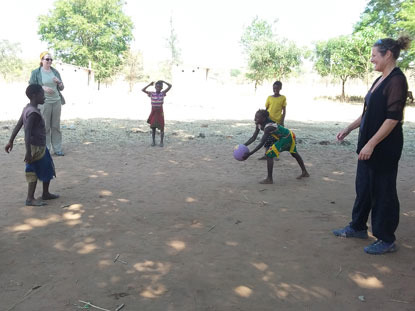
Playing with schoolchildren
The whole trip was a once-in-a-lifetime experience and the participants worked incredibly hard to raise over £60,000 between them, which will make a huge difference in helping the thousands of cats and kittens in our care.
If you’re thinking about signing up to our next big cat challenge and want to read the stories of all those who took part please visit the group fundraising page here.

